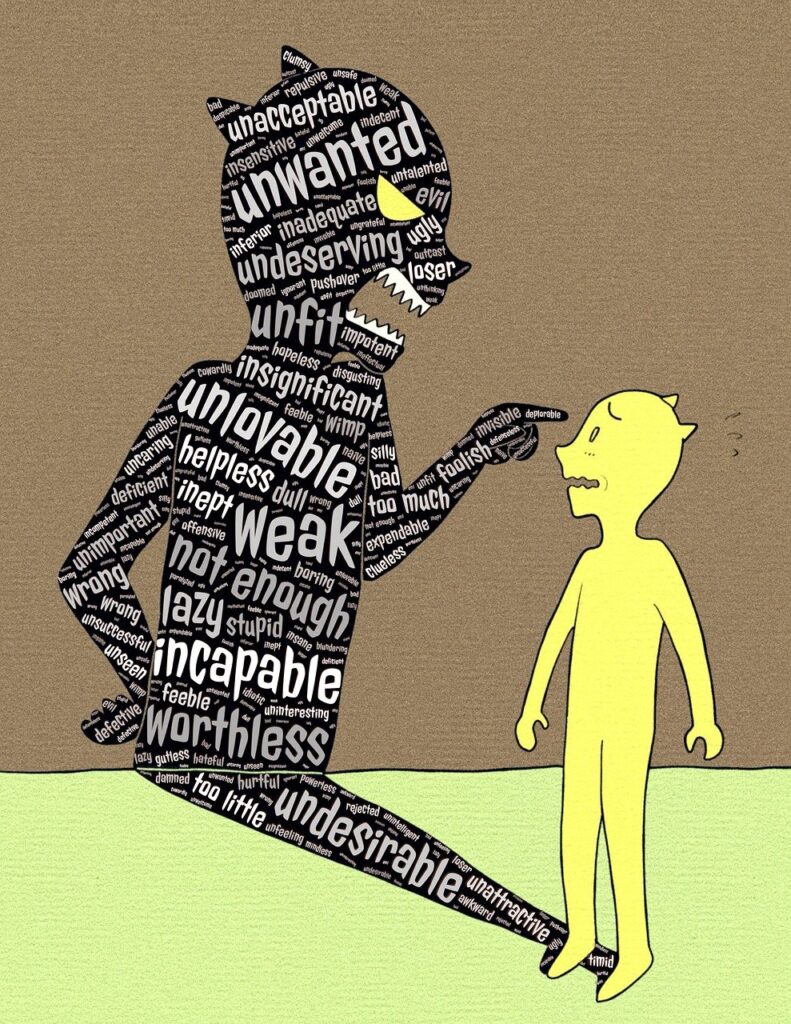Have you ever had a fleeting thought like, “I should’ve known better,” or “They probably think I’m being too much”? Maybe you’ve hesitated to speak up in a meeting or replayed a conversation from days ago, wondering if you came across the wrong way. These subtle thoughts can seem harmless—but they often come from a deep and relentless voice – your inner critic.
That’s your inner critic at work.
Your inner critic is the internal voice that questions your worth, abilities, and decisions. It can sound like self-doubt, guilt, or even perfectionism. It’s often shaped by past experiences, societal pressures, or early messaging about who we “should” be. While sometimes it feels like it’s helping us improve or stay safe, more often it holds us back and keeps us stuck.
5 Ways the Inner Critic Impacts Us
1. It undermines self-worth
Even subtle self-criticism erodes confidence over time, making it harder to trust yourself or feel good about your efforts.
2. It increases anxiety
The inner critic amplifies fear of failure or judgment—creating stress around decisions, relationships, or performance.
3. It keeps us playing small
When you believe you’re not ready or not good enough, you may hold back from opportunities, even if you’re capable and deserving.
4. It disguises itself
Not all inner critics are loud. Some are quiet and logical-sounding—“You’re just being realistic.” But their roots are often in fear and shame.
5. It shapes your reality
Over time, the inner critic can become so familiar that it feels like truth, rather than a distorted voice we’ve internalized.
The Good News
Your inner critic isn’t the full story—it’s just one part of your internal world. And the great thing is: you can change your relationship with it.
In therapy, you can begin to understand this part of you—not as an enemy, but as a voice that once tried to protect you. With curiosity and support, it’s possible to stop letting the inner critic lead, and instead create space for other parts of you—ones rooted in compassion, confidence, and clarity. Over time, you can build a kinder, more encouraging inner voice that supports growth rather than fear.
FAQ: Understanding Your Inner Critic
What is the inner critic?
The inner critic is an internal voice that focuses on our flaws, doubts, or mistakes. It often shows up as self-judgment, fear of failure, or feelings of not being good enough. While it sometimes tries to protect us from disappointment, it usually holds us back and undermines our confidence.
How can I tell if my inner critic is active?
Sometimes the inner critic is obvious, like harsh self-talk after a mistake. Other times, it’s quieter—showing up as second-guessing, overthinking, or believing you’re “not ready” or “not enough.” Learning to recognize its patterns is an important first step toward change.
Is it possible to get rid of the inner critic?
Rather than trying to get rid of the inner critic, a more compassionate approach is to change your relationship with it. You can learn to listen with curiosity, understand its fears, and choose not to let it lead. Over time, the inner critic’s voice can soften, making space for self-compassion and growth.
How can therapy help with the inner critic?
Therapy provides a safe, supportive space to explore the roots of your inner critic and develop new ways of relating to yourself. Through approaches like self-compassion, parts work, and emotional awareness, you can build a stronger, more encouraging inner voice.
If you’re ready to shift how you relate to yourself and create meaningful change, I’m here to help. I offer therapy in Barrie and online across Ontario. Let’s talk.
